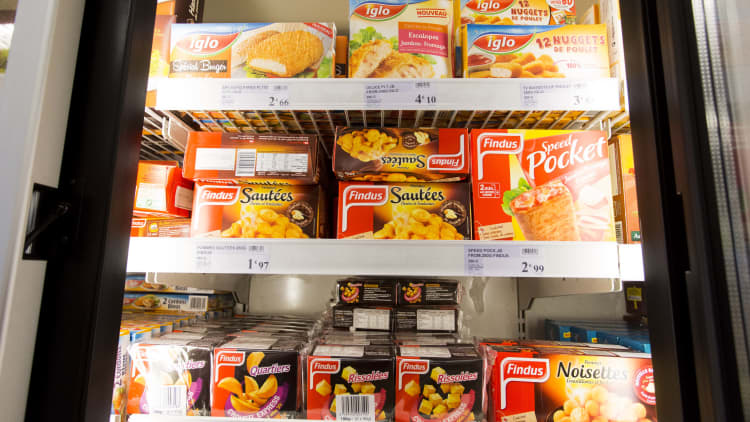Bowery, a vertical farming company that grows crops indoors, is getting more shelf space at Amazon's Whole Foods, with a deal to triple the stores stocking its salad kits. Currently, Bowery's salad kits and a selection of greens are carried at 50 Whole Foods Market stores in the Northeast. The expansion will increase the store count to 150 Whole Foods Market locations in the North Atlantic, Mid-Atlantic, and Northeast.
Bowery first broke into the market with a variety of leafy greens, but in September of last year it began marketing ready-to-eat salad kits.
"Demand for ready-to-eat, planet-positive meals is booming," said Matt Williams, Bowery's chief sales officer in a statement announcing the deal.
Three flavors of salad kits including Zesty Caesar, Avocado Ranch, and Balsamic Vinaigrette, will be available. The company is adding a compostable fork to the salad kits, and the deal with Whole Foods includes an expanded presence of its core products, including basil, baby romaine lettuce, baby butter, crispy leaf and baby kale.
Bowery, which ranked No. 46 on the 2023 CNBC Disruptor 50 list, currently sells its greens and salad kits through e-commerce and at over 1,900 stores. It claims to be the largest U.S. vertical farming company and has distribution deals with national food retailers including Walmart, Giant, Albertsons, Shoprite and specialty independents like DeCicco & Sons, Westside Market and Brooklyn Fare. Its products are also sold through distributors like Baldor and Four Seasons, and e-commerce grocer FreshDirect.
Last week, Bowery announced an expansion for its salad kits with Amazon Fresh, the retail giant's online and physical grocery store (with operations in nine states) that offers same-day delivery and pickup in select locations for Prime members. According to a Bowery spokesperson, the Amazon Fresh deal will expand its product availability up and down the East Coast, including the Southeast and Florida, with distribution ramping up in the next few weeks from Virginia to Tennessee, North Carolina (including Charlotte), the Atlanta region, and within Florida, Jacksonville and Miami.
The deal comes amid challenges for both vertical farming and Amazon's efforts to expand its grocery footprint.
Amazon closed several of its Fresh supermarkets and Go convenience store locations identified as "low growth potential" earlier this year, and as part of a larger cost-cutting strategy by the company. The store closures resulted in a $720 million impairment charge. Amazon CEO Andy Jassy said on a February earnings call that the retailer was pausing expansion of Fresh stores to examine the business, and as Amazon searched for a store format that resonated with customers and "where we like the economics."
"When we do find that equation, we will expand it more expansively," Jassy said.
The vertical farming industry, meanwhile, has been under pressure, like many formerly high-flying, heavily VC-funded startup niches. AeroFarms and Appharvest, companies in the indoor farming space, both recently filed for bankruptcy, the latter just on Monday. According to PitchBook, through the first quarter of 2023, vertical farming deals declined by 91% year-over-year.






